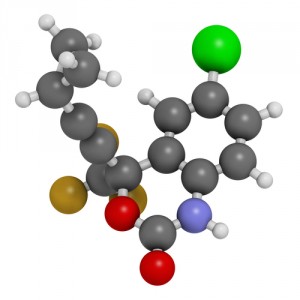 Recent research reports that tenofovir disoproxil fumarate (TDF) therapy for long periods is efficient in Chinese patients with chronic hepatitis B virus (HBV) infection that have relapsed after therapy with multiple nucleoside/nucleotide analogues (NA), such as lamivudine and adefovir, probably due to the development of resistance.
Recent research reports that tenofovir disoproxil fumarate (TDF) therapy for long periods is efficient in Chinese patients with chronic hepatitis B virus (HBV) infection that have relapsed after therapy with multiple nucleoside/nucleotide analogues (NA), such as lamivudine and adefovir, probably due to the development of resistance.
The study entitled “Efficacy of tenofovir disoproxil fumarate therapy in Chinese chronic hepatitis B patients after multiple antiviral failures” was published in Hepatology Research by Yingxia Liu, first author from the group of Dr. Jia Xiao, senior author at State Key Discipline of Infectious Diseases at Shenzhen Third People’s Hospital in China, and other colleagues.
Tenofovir disoproxil fumarate is commercialized as Viread (Gilead Sciences) and belongs to a class of antiretroviral drugs known as nucleotide analogue reverse transcriptase inhibitors (NRTIs), which inhibits the reverse transcriptase enzyme from the human immunodeficiency virus 1 (HIV-1) and hepatitis B virus infections.
In this prospective study, the researchers evaluated the efficacy and safety of tenofovir disoproxil fumarate (TDF) in 115 chinese chronic hepatitis B (CHB) patients that failed two or more nucleoside/nucleotide analog (NA) therapies. They treated the enrolled patients with TDF 300 mg by oral administration every day for a minimum of 72 weeks. The screening of the hepatitis B virus (HBV) polymerase (P) gene mutation was conducted for each patient. Additionally, virological, biochemical responses and estimated glomerular filtration rate (eGFR) of each patient were evaluated at weeks 12, 24, 48 and 72 of TDF therapy.
Notably, the researchers found that individuals with dual resistance to lamivudine and adefovir had significantly lower complete viral response (CVR), defined as HBV DNA level below 100 IU/mL, rates after 72 weeks than patients resistant to only one of the drugs.
The researchers added in a news release that “TDF monotherapy may not be enough for patients with multiple mutations, which need further antiviral therapies.”
Moreover, the researchers stated that “TDF may serve as a promising agent against HBV infection clinically” given its potent antiviral effects and good tolerability. “Indeed, a randomized double-blind placebo-controlled multicenter clinical trial of the long-term efficacy and safety of TDF therapy in [chronic hepatitis B] patients is warranted to further investigate its application.”

